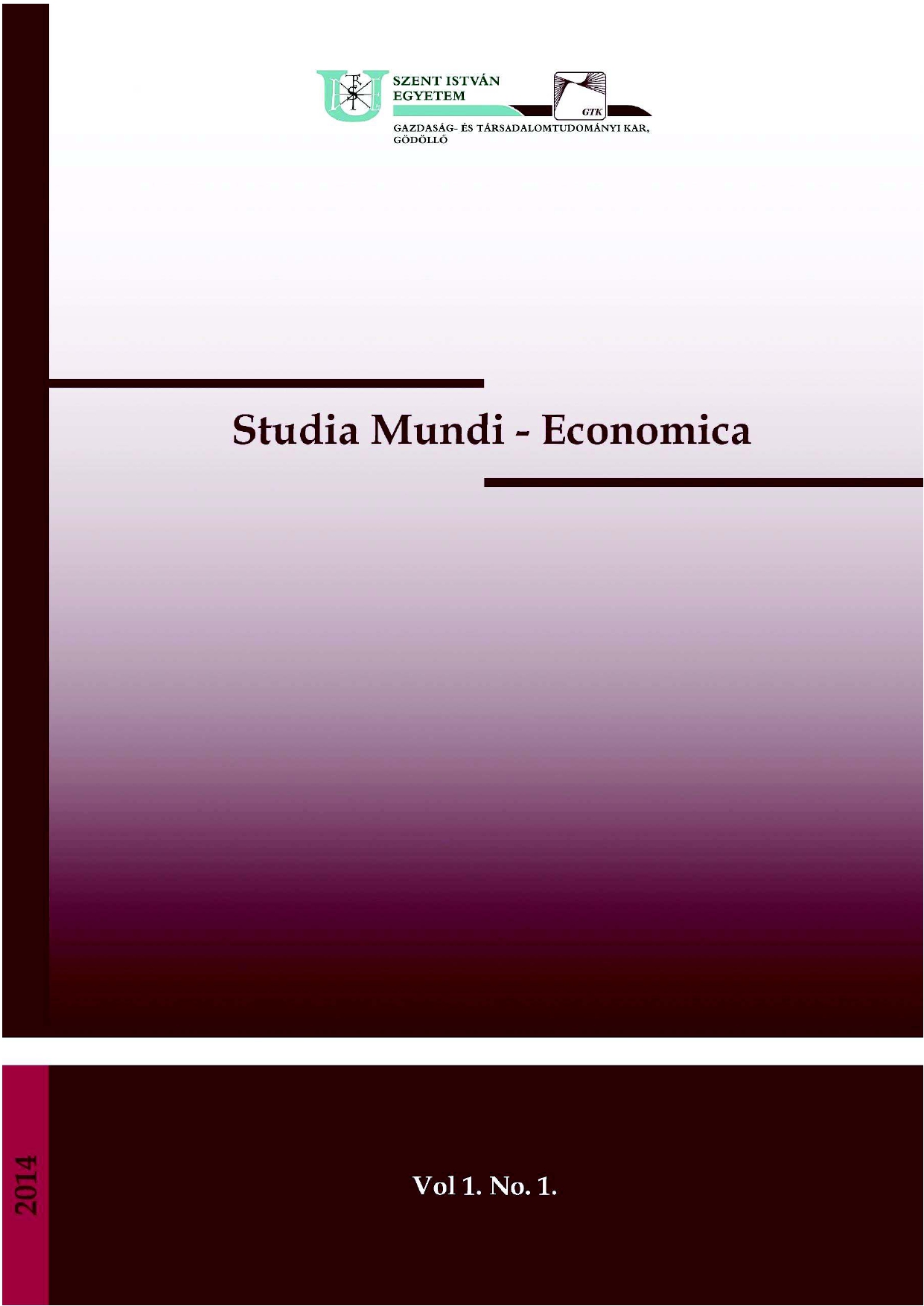Assessment on the implementation of woreda decentralization in Gambella People’s National Regional State, Ethiopia: the case of Abobo and Lare woredas
DOI:
https://doi.org/10.18531/Studia.Mundi.2014.01.01.1-11Keywords:
Woreda Decentralization, Local Governance, Planning and Budgeting, Community Participation and Service DeliveryAbstract
This research is concerned with the assessment on the implementation of woreda decentralization in Gambella Peoples National Regional State with particular emphasis to Abobo and Lare woredas. It attempted to explore the objectives, legal and institutional frameworks and implementation status of the recently embarked DLDP and fiscal decentralization in the Gambella region. Secondly, the study provided a modest preliminary investigation of some performance indicators of the program in terms of power and authority, local governance processes, inter-governmental relations, financial and administrative capacities, planning and budgeting processes, community participation and basic service delivery trends with particular reference to the two woredas. Finally, the study tried to illustrate some of the major inherent and encountered problems and the possible prospects of the program. To meet the above objectives, the research employed more of qualitative case study approach. Both primary and secondary data sources were used in gathering pertinent information. The technique of collecting primary data includes in-depth interviews at regional, woreda and kebele levels, focus group discussions with the community and personal observation. Secondary sources are published and unpublished materials such as books, different reports and manuals that cover federal to the woreda. Descriptive method of analysis is used to analyze the primary and secondary data. The study found out that decentralization in general and woreda decentralization in particular had not been implemented adequately due to several reasons. It is challenged by many problems such as inadequate devolution of power, limited decisions-making authority and autonomy transferred to local governments, absence of political will and commitment to devolve power in real sense, lack of legal and institutional framework, poor inter-governmental relations and weak coordination with different stakeholders, upward accountability and absence of transparency in the operation of local governments, shortage of resources (skilled human power and material), limited administrative, institutional and technical local capacities, weak budgeting and expenditure administration, poor revenue generating capacity and heavy financial dependency on federal and regional governments, and weak public sector service deliveries. Regarding participation, there is low level of community participation in different sectors at the stage of problem identification, prioritization of needs, planning and budgeting processes and decision making activities at regional and local levels. Hence, to make decentralization meaningful and benefits of woreda decentralization to be realized, recommendations are made on power and authority, political commitments, legal and institutional frameworks, capacity issues, inter-governmental relations, accountability, transparency, financial and human resources and community participation.
References
Central Statistical Authority (CSA) (2007). Office of Population and Housing Census of Ethiopia, Summary of Statistical Report, Addis Ababa.
Federal Democratic Republic of Ethiopia (FDRE) (1995). The Constitution of the Federal Democratic Republic of Ethiopia, Negarit Gazeta, 1st year, No. 1. 1995, Addis Ababa: FDRE.
Gambella Peoples National Regional State (2002). Revised Constitution of the Gambella Peoples National Regional State Proclamation No. 27/2002, Gambella.
Gambella Peoples National Regional State Five Years Strategic Plan (2006).
Gambella (From 1998-2002 E.C). Gambella Regional State Council, Gambella (2010).
Gambella Peoples National Regional State District Level Decentralization Program (DLDP, 2008) Action plan for the Year 2008/09.
Kumera Kenea (2006). Decentralized Governance and Service Delivery: A Case Study of Digelu and Tijo Woreda of Arsi Zone, Oromia Region. Unpublished MA Thesis, RLDS, AAU, Addis Ababa.
Meheret Ayenew (2007). ‘A Rapid Assessment of Woreda Decentralization in Ethiopia’. In Decentralization in Ethiopia, Taye Assefa and Tegegne Gebre-Egziabher (eds.), Forum for Social Studies, Addis Ababa.
Tegegne Gebre-Egziabher (2007). ‘A Brief Overview of Decentralization in Ethiopia’. In Decentralization in Ethiopia, Taye Assefa and Tegegne Gebre-Egziabher (eds). Forum for Social Studies, Addis Ababa.
Transitional Government of Ethiopia (TGE) (1992). Proclamation No. 7/1992 providing for the establishment of national regional self governments. Addis Ababa: FDRE.
Tsegaye Tilahun (2008). The State of Decentralized Service Delivery: The Case of Abobo and Gog Woredas in Gambella Regional State. Unpublished MA Thesis, RLDS, AAU, Addis Ababa.
Downloads
Published
Issue
Section
License
Copyright (c) 2014 Tegegne Gebre-Egzhiaber, Abrham Gebreselassie Gebreyes

This work is licensed under a Creative Commons Attribution-NonCommercial-NoDerivatives 4.0 International License.
A folyóirat Open Access (Gold). Cikkeire a Creative Commons 4.0 standard licenc alábbi típusa vonatkozik: CC-BY-NC-ND-4.0. Ennek értelmében a mű szabadon másolható, terjeszthető, bemutatható és előadható, azonban nem használható fel kereskedelmi célokra (NC), továbbá nem módosítható és nem készíthető belőle átdolgozás, származékos mű (ND). A licenc alapján a szerző vagy a jogosult által meghatározott módon fel kell tüntetni a szerző nevét és a szerzői mű címét (BY).






